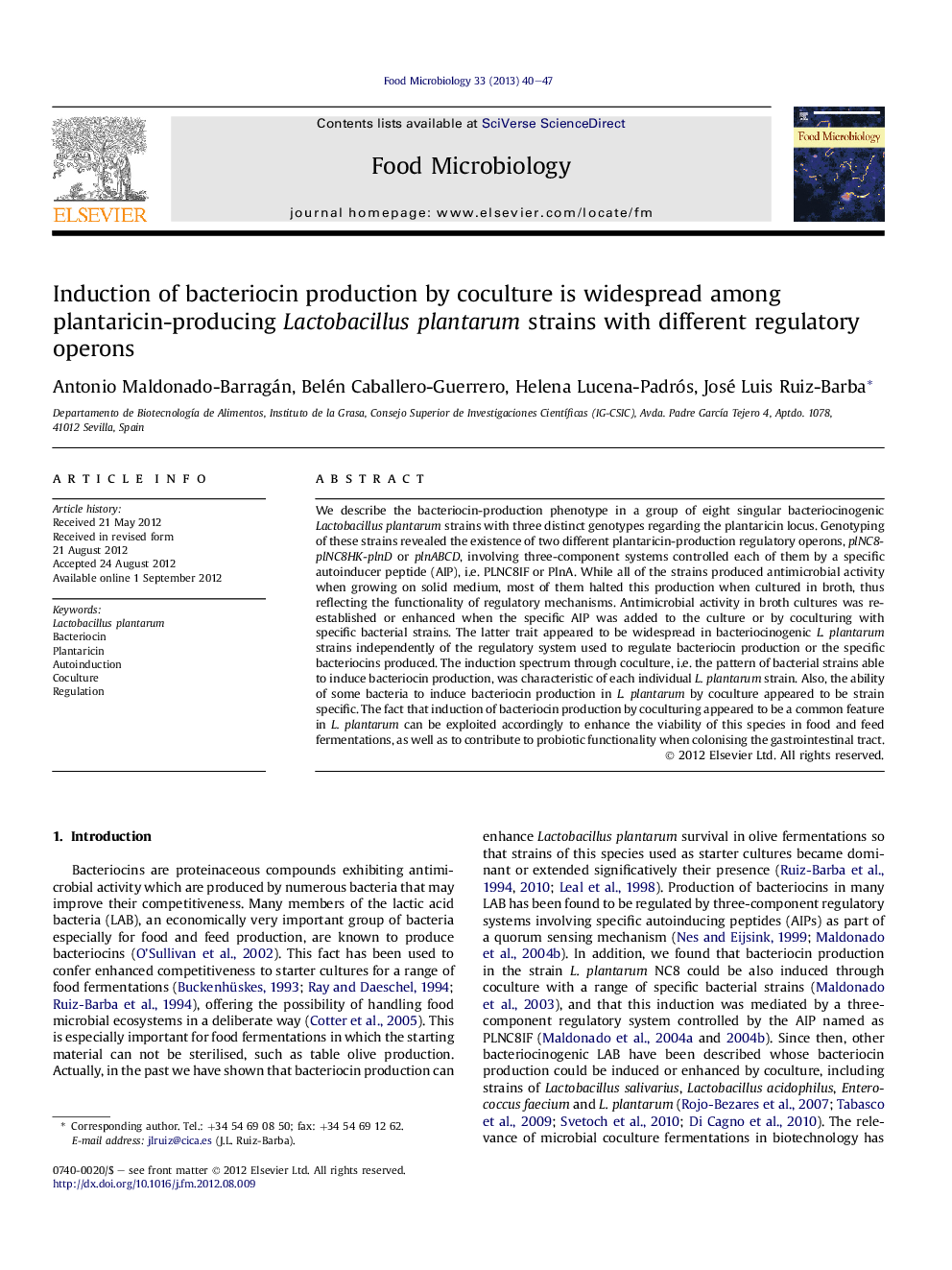| Article ID | Journal | Published Year | Pages | File Type |
|---|---|---|---|---|
| 4362971 | Food Microbiology | 2013 | 8 Pages |
We describe the bacteriocin-production phenotype in a group of eight singular bacteriocinogenic Lactobacillus plantarum strains with three distinct genotypes regarding the plantaricin locus. Genotyping of these strains revealed the existence of two different plantaricin-production regulatory operons, plNC8-plNC8HK-plnD or plnABCD, involving three-component systems controlled each of them by a specific autoinducer peptide (AIP), i.e. PLNC8IF or PlnA. While all of the strains produced antimicrobial activity when growing on solid medium, most of them halted this production when cultured in broth, thus reflecting the functionality of regulatory mechanisms. Antimicrobial activity in broth cultures was re-established or enhanced when the specific AIP was added to the culture or by coculturing with specific bacterial strains. The latter trait appeared to be widespread in bacteriocinogenic L. plantarum strains independently of the regulatory system used to regulate bacteriocin production or the specific bacteriocins produced. The induction spectrum through coculture, i.e. the pattern of bacterial strains able to induce bacteriocin production, was characteristic of each individual L. plantarum strain. Also, the ability of some bacteria to induce bacteriocin production in L. plantarum by coculture appeared to be strain specific. The fact that induction of bacteriocin production by coculturing appeared to be a common feature in L. plantarum can be exploited accordingly to enhance the viability of this species in food and feed fermentations, as well as to contribute to probiotic functionality when colonising the gastrointestinal tract.
► Coculture induction of bacteriocin production is widespread in Lactobacillus plantarum. ► Bacteriocin induction by coculture is independent of the regulatory operon. ► The induction spectrum by coculture is specific of each L. plantarum strain. ► The ability to induce bacteriocin production in L. plantarum is strain specific. ► Coculture could enhance viability of L. plantarum in complex ecosystems.
